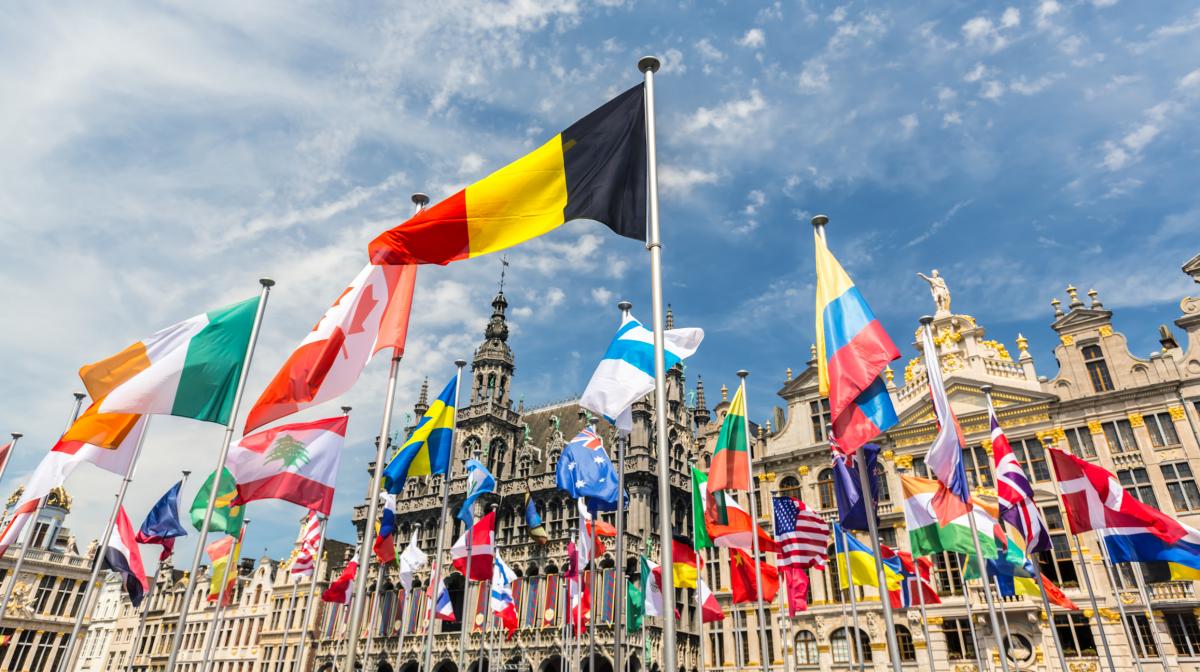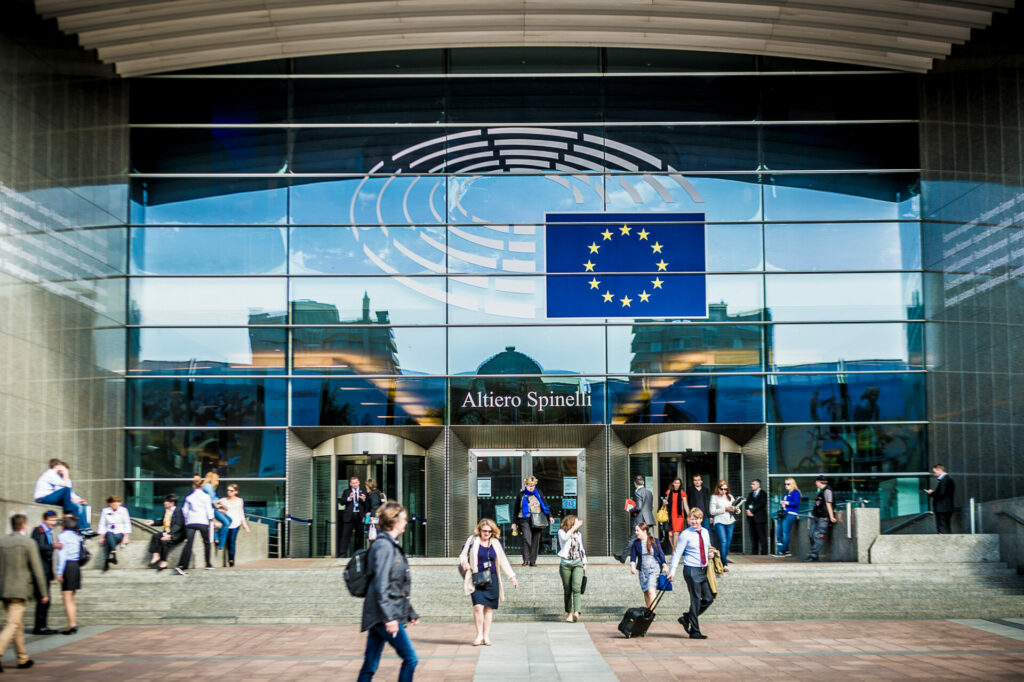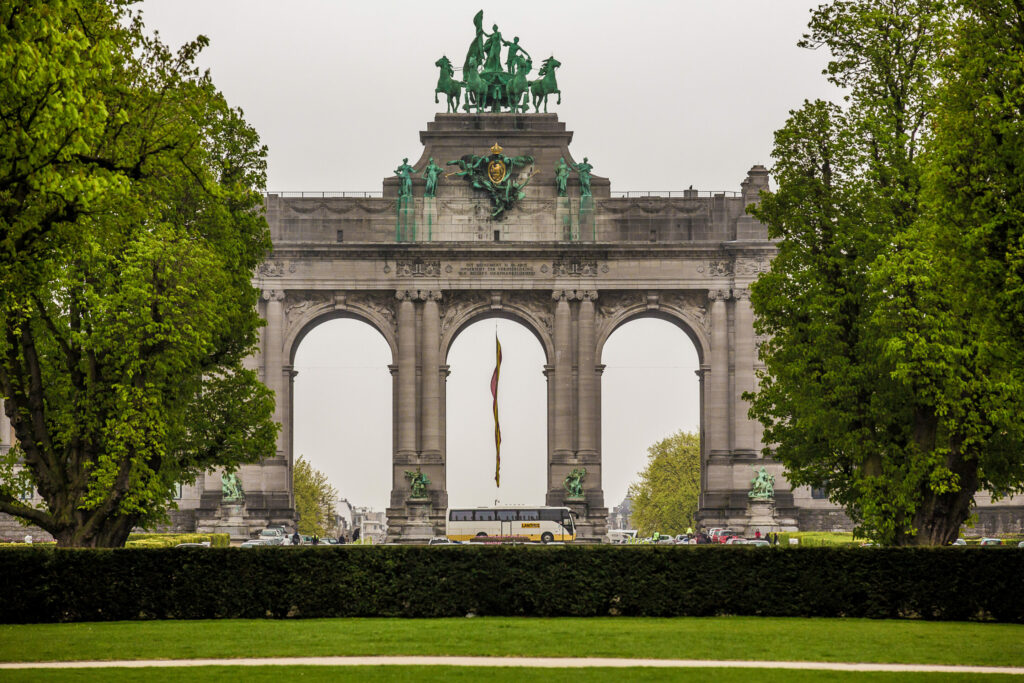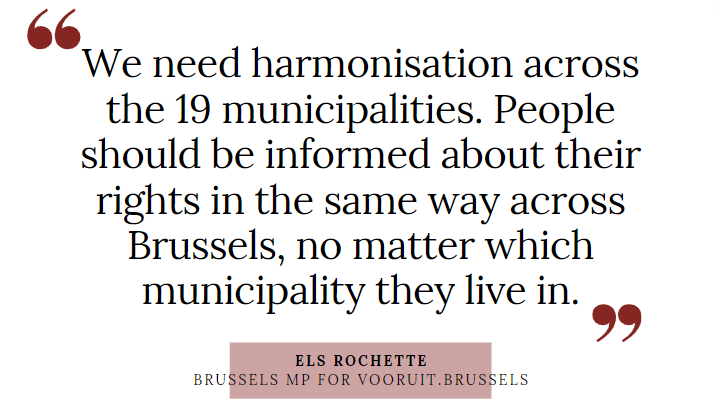Almost a third of potential voters in the Brussels-Capital Region are non-Belgians, but without clear information or a uniform approach, most of them are not exercising their democratic rights. The Brussels Parliament has now adopted a resolution to change that.
The Brussels-Capital Region has more than 1.2 million residents on its territory – about 450,000 of them international. And even though many of these non-Belgians have the right to vote in local elections, very few of them actually do.
"Of all potential voters in Brussels, 28% are non-Belgian. But only a very small percentage of them take up that right," Brussels MP Els Rochette (Vooruit.brussels), who submitted the resolution last year, told The Brussels Times. "We need to improve that. If we don't, we are basically excluding people and that is not democratic."
"Non-Belgians often do not realise they have the right to vote in local elections. So, the first step is to inform citizens. The Region must direct and assist municipalities in that task," she added.
A harmonised system
Present efforts to engage non-Belgians differ from municipality to municipality: some make considerable efforts; others are very limited.
Saint-Gilles, for example, sends leaflets in different languages with information on how to register; Saint-Josse-ten-Noode – which has a large Turkish population – distributes information in Turkish. Meanwhile in Ixelles, 45% of residents are non-Belgian but the municipality does little to proactively include that part of the population.
In practice, this results in 19 different methods (for each Brussels municipality), with outreach and communication materials varying across the Capital Region. As a result, some municipalities score well in terms of participation whilst others do less well. However there is no guidance from the Region.

Credit: Unsplash
"Our most important demand is harmonising the 19 systems in the 19 municipalities," Rochette said. "That way, we make sure that EU citizens or non-EU nationals who have been in Belgium for five years are informed about their right to participate in local elections, no matter which municipality they live in. We want equal treatment for all Brussels residents."
Rochette highlights issues that make the current system open to abuse – especially with elections coming up in less than two months. "If you know that a large community in your municipality supports you, you can target them specifically. Conversely, authorities can be less communicative about issues if they know that a large part of residents do not support them."
With her resolution, Rochette wants to create uniform rules in the 19 municipalities, with support from the Region. Her proposal aims to make it possible for EU nationals arriving in Brussels to immediately register for the elections when they register in the municipality for the first time.
Voting in regional elections
Potential voters should also be "recovered" – retroactively asked why they have not voted before and to inform them of how to do so. The Region should support municipalities in creating uniform, informed and clear information (translations, graphics, pictograms) for distribution, as well as investigating why non-Belgians do not register to vote and monitoring participation.
On top of that, Rochette is pushing for a constitutional change to extend the right of non-Belgians to vote in regional elections. "This currently only exists for local elections but why not make that regional? Many competences lie with the Regional Government, think of mobility and cleanliness."
The resolution would not become law, and would therefore be non-binding. "These are only recommendations but would send a clear signal from the majority that the government should be working on this," Rochette said, adding that the approved resolution will also be good to put on the table during government negotiations.
At the same time, this message will also trickle down to municipal authorities. Several MPs have a municipal mandate and the co-signatories come from different parties, which are all represented in the Brussels municipalities.
So far, the Capital Region's efforts are too limited – as is evidenced by Rochette's earlier questions to Brussels Minister of Local Authorities Bernard Clerfayt.
For example, whilst the elections.brussels website about the 13 October municipal elections (launched on 12 January) has a section specifically for non-Belgians, none of the information it provides is available in English. Clerfayt says that due to Belgium's language laws the website is only in Dutch and French – the official languages of the Region.
"For many non-Belgians, English is the lingua franca," Rochette said. "Yet the minister limits himself to French and Dutch in communication with non-Belgians. During the Covid-19 pandemic, however, the government communicated in many languages to reach all citizens."

Headquarters of the European Parliament in Brussels. Credit: Belga/Siska Gremmelprez
Clerfayt relies on associations to reach different language communities and has made €150,000 available to 13 associations that encourage non-Belgians to vote in local elections. They provide information in 12 languages (Dutch, English, Polish, Romanian, Greek, Spanish, Portuguese, Norwegian, Swedish, Danish and Italian) but Rochette argues that the initiative lacks ambition, with no targets defined by the minister.
Ideally, participation in municipal elections for each language group should be proportional to the number of eligible voters from that language group, Rochette said.
In addition to the resolution in Parliament, Vooruit.brussels runs a social media campaign that aims at non-Belgians and directs interested parties to their website where those wishing to register on the electoral roll will find a step-by-step guide.
The resolution has now been approved in the committee and still needs to be confirmed in a plenary session – which will happen before the end of May.


